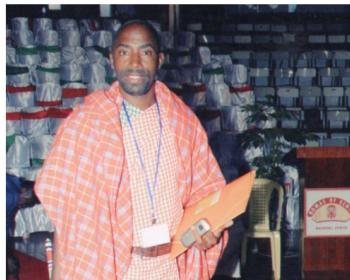The Cherangany Multipurpose Development Programme (CHEMUDEP) in Nairobi, Kenya works for the land, culture, language, and natural resource rights of Indigenous Peoples through community empowerment, human rights advocacy, and general development. The organization was founded in 2003 by the Cherangany people and has been working to develop and implement its community protocol for obtaining the Cherangany community's Free, Prior, and Informed Consent (FPIC).


